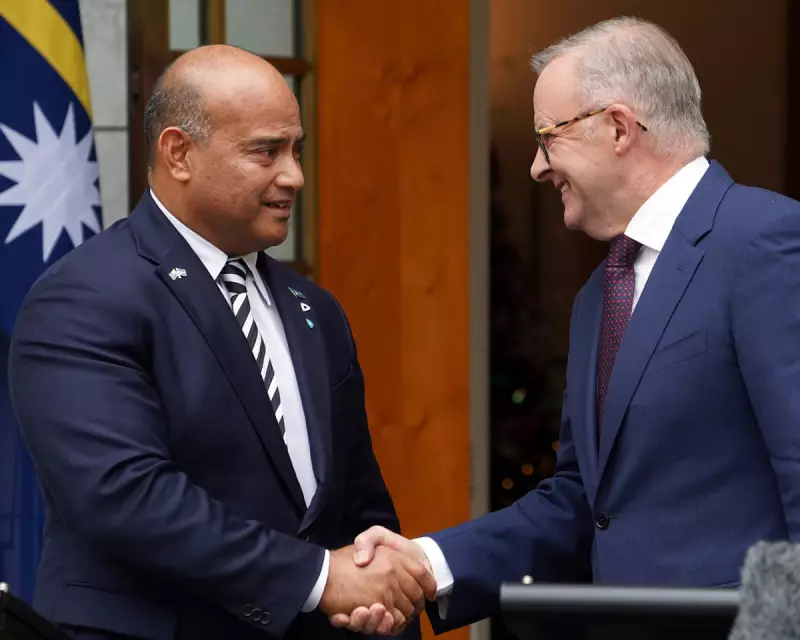
Australian Prime Minister Anthony Albanese is standing by his government's controversial asylum seeker processing agreement with Nauru, despite mounting corruption allegations against the Pacific island nation's president.
Defending the Strategic Partnership
The Labour leader publicly endorsed the arrangement with Nauru's government, led by President David Adeang, during a press conference on Wednesday. Albanese described the partnership as "enduring" and crucial for Australia's border protection strategy, even as serious questions emerge about the leadership in Nauru.
This defence comes at a politically sensitive time, with the Australian government having recently signed a substantial new memorandum of understanding to continue using Nauru as an offshore processing location for asylum seekers intercepted at sea.
Corruption Allegations Surface
The situation has grown increasingly complex following revelations about President Adeang's conduct. Nauru's former treasurer, Michael Aroi, has made startling claims that Adeang attempted to pressure him into authorising questionable financial transactions shortly after assuming power.
According to Aroi's account, the newly elected president approached him with requests that raised immediate red flags. The former treasurer stated he resisted these pressures, citing concerns about proper financial governance and transparency.
These allegations have triggered wider apprehension about the stability and integrity of Australia's primary offshore processing partner. Critics are questioning whether a government facing such serious corruption claims should remain the recipient of substantial Australian financial support.
Political Fallout and Future Implications
The opposition coalition in Australia has seized upon the developing situation, with immigration spokesperson Dan Tehan accusing the government of turning a blind eye to governance issues in exchange for maintaining the offshore processing arrangement. Tehan described the government's position as "deeply concerning" and demanded greater transparency about what Australian officials knew regarding the allegations against Adeang.
Meanwhile, refugee advocacy organisations have intensified their calls for Australia to reconsider its entire offshore processing framework. They argue that the corruption allegations demonstrate the inherent risks of outsourcing asylum seeker processing to nations with questionable governance records.
The Australian government finds itself navigating delicate diplomatic waters, balancing its border protection policies against growing ethical concerns about its partnership with Nauru's current administration.
As the situation develops, all eyes remain on how Albanese's government will manage this challenging political and humanitarian dilemma while maintaining its commitment to regional processing of asylum seekers.





